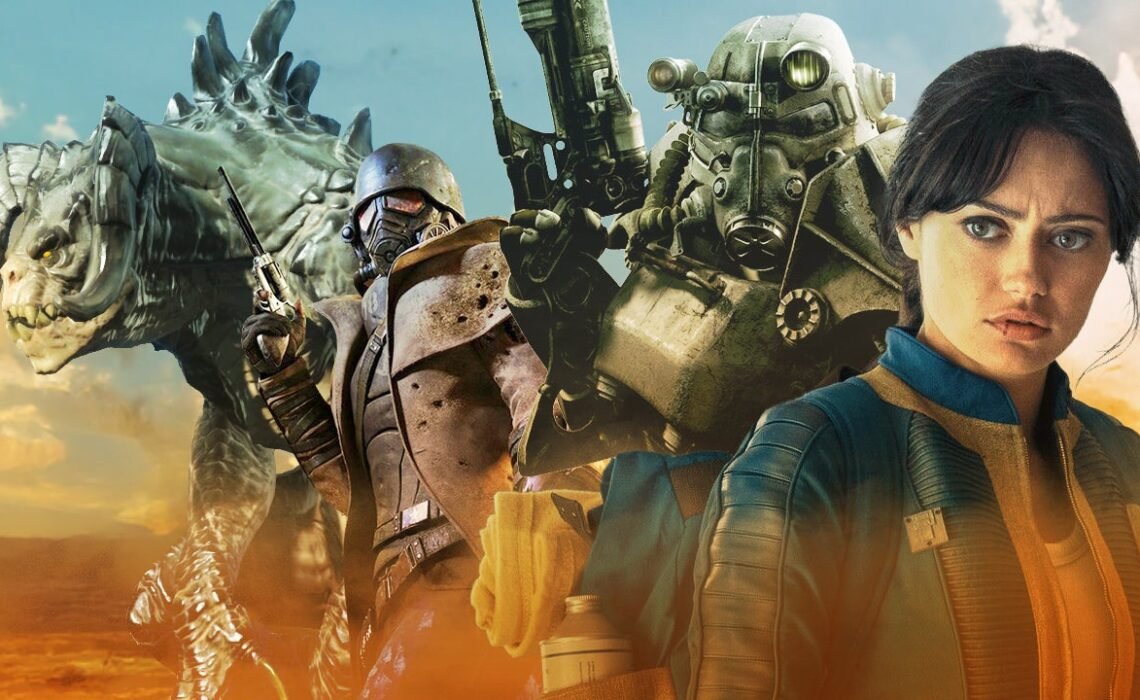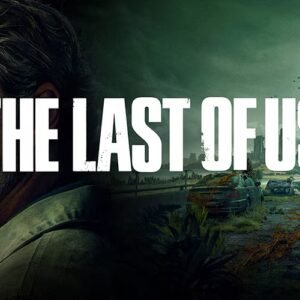Video game adaptations have a troubled past. For years, fans have approached each new attempt with cautious optimism, only to be met with underwhelming results. But in 2024, Fallout, Amazon Prime Video’s bold dive into the radioactive, retro-futuristic world of one of gaming’s most beloved franchises, changed everything. Rather than merely adapting a game, Fallout reimagines its source material with a fresh narrative, multi-dimensional characters, and biting social commentary—all while retaining the absurdity and horror that made the games unforgettable.
In just a few weeks, Fallout has not only dominated trending lists on X (formerly Twitter), TikTok, and Reddit, but has also redefined what it means to successfully adapt interactive fiction into prestige television.
A New Wasteland to Explore
Set in the post-apocalyptic remnants of Los Angeles, the show blends familiar world-building with new storytelling. For fans of the games, there are nods to Vault-Tec’s manipulative experiments, the Brotherhood of Steel’s militarized ideology, and the lawlessness of the surface Wasteland. But for newcomers, the series offers a fully standalone story, driven by its compelling leads: Lucy MacLean (Ella Purnell), Maximus (Aaron Moten), and The Ghoul (Walton Goggins), whose intertwining journeys form the emotional backbone of the show.
Where the games dropped players into a sandbox of nuclear ruin, the series uses that backdrop to ask deeper questions about survival, morality, and the American dream—twisted and irradiated, yet still somehow clinging to its former mythos.
Ella Purnell and Walton Goggins Are Breakout Stars
Ella Purnell, fresh off her success in Yellowjackets, brings an almost ironic optimism to Lucy, a Vault Dweller raised on pre-war values who ventures to the surface in search of her missing father. Her character’s wide-eyed innocence is shattered by the brutal reality of the Wasteland, making her evolution one of the show’s most compelling arcs. She perfectly captures the tension between learned ideals and harsh truths, making Lucy a new fan-favorite in the Fallout universe.
Meanwhile, Walton Goggins steals the show as “The Ghoul,” a bounty hunter and former Hollywood actor whose grotesque appearance hides a tragic backstory. Goggins, known for playing morally gray characters, fully embraces the unhinged charm of his role. His blend of dry humor, existential exhaustion, and ruthless pragmatism elevates every scene he’s in.
Aaron Moten’s Maximus, a Brotherhood of Steel squire with secrets of his own, adds another layer of nuance, as he navigates the rigid, hierarchical world of the Brotherhood while questioning what honor and loyalty really mean.
High Budget, Higher Expectations
Helmed by Westworld creators Jonathan Nolan and Lisa Joy, Fallout benefited from a massive production budget, reportedly over $150 million for its first season. The result is a world that feels lived-in and painfully authentic. From the glowing green radiation storms to the meticulously detailed Vaults and mutant-infested wastelands, every frame is visually rich. The retro-futuristic aesthetic—a mashup of 1950s optimism and dystopian decay—is captured beautifully, right down to the jukeboxes and torn propaganda posters.
The commitment to practical effects over CGI whenever possible gave the series a grounded feel, even as it features power armor, mutated wildlife, and robot butlers.
From Cult Game to Mainstream Phenomenon
What sets Fallout apart is that it doesn’t merely retell a game’s plot. Instead, it expands the universe. This isn’t Fallout 3 or New Vegas rehashed for TV; it’s a new chapter, respecting the franchise’s core themes while pushing into new territory. Hardcore fans and casual viewers alike can appreciate it—and that’s part of why the series is being lauded as a cultural milestone.
Its release has sparked a surge in interest in the Fallout games, with Fallout 4 and New Vegas climbing Steam charts and Bethesda announcing next-gen upgrades and patches to capitalize on the momentum.
Satire, Violence, and Social Commentary
Much like the games, the series thrives on satire. Vault-Tec’s cheery branding masks horrific experiments. The Brotherhood of Steel’s noble mission is tinged with zealotry. The surface world’s chaos echoes the failures of capitalism, government, and human nature.
In one scene, a Vault simulation program blithely guides children through a lesson on “post-nuclear etiquette,” juxtaposing childlike innocence with totalitarian messaging. These moments echo real-world anxieties—climate disaster, authoritarianism, surveillance—without becoming preachy. They’re darkly funny, unsettling, and memorable.
The violence, too, is visceral. From exploding heads to grotesque mutations, the show doesn’t shy away from the physical toll of the Wasteland. But it’s never gratuitous. Like The Boys or Game of Thrones, violence here is commentary—a reflection of the lawless world Fallout inhabits.
A Rare Win for Video Game Adaptations
The success of Fallout joins a growing list of well-received game-to-screen adaptations (The Last of Us, Arcane, Cyberpunk: Edgerunners), signaling a shift in Hollywood’s approach. Instead of hollow fan-service or generic action, creators are now focusing on story-first adaptations that understand their source material and audience.
This new era treats video games as legitimate narrative mediums, not just IP to mine. And Fallout, with its thoughtful worldbuilding and rich character arcs, may be the best example yet.
What’s Next?
Amazon has already greenlit Fallout Season 2, rumored to explore new locations and characters while continuing the arcs established in Season 1. Given the series’ cliffhanger ending and the vast world of the franchise, the possibilities are endless—from exploring factions like Caesar’s Legion to delving deeper into the corrupt pre-war corporations that helped doom the world.
More importantly, the show’s success proves there’s a hunger for more than nostalgia. Viewers want stories that challenge, surprise, and reflect the complexities of our own world—even if it’s told through the lens of irradiated ruins and Nuka-Cola ads.
Final Thoughts
Fallout isn’t just a great adaptation—it’s a new benchmark. It balances fan expectations with cinematic ambition. It’s gritty, funny, tragic, and eerily relevant. In a sea of recycled content and forgettable streaming fare, Fallout is a rare triumph that stands out for its boldness and brains.
The Wasteland may be bleak, but if this is the future of game adaptations, there’s reason to be hopeful.





